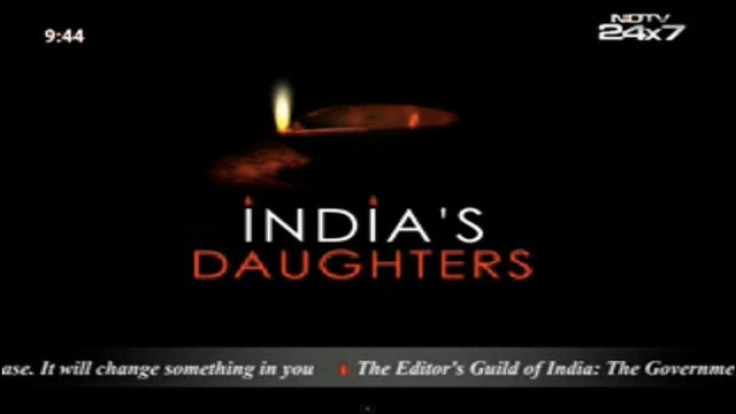India: NDTV channel protests against ban of Delhi rape documentary

Indian TV network NDTV has halted programming in protest at the banning of the BBC documentary India's Daughter.
The film highlights the horrifying truth of the brutal and tragic gang rape and murder of a medical student on a Delhi bus in 2012. The incident shocked a nation and sparked widespread protests throughout the country.
The documentary, which features an interview with one of the men convicted of the heinous crime, was due to be broadcast by the channel on 8 March, but was outlawed by Indian authorities on the grounds of "objectionable content."
Parliamentary affairs minister, M Venkaiah Naidu said the film is "an international conspiracy to defame India."
Asha Devi, Jyoti's mother says "Have seen the documentary, support it" #IndiasDaughter #LiftTheBan @ndtv pic.twitter.com/a9bj7RjIHb
— India's Daughter (@IndiasDaughter) March 4, 2015Responding in protest at the ban, NDTV made the decision to run a slate featuring the film's title, during the hour-long slot when it should have aired.
Explaining its decision not to broadcast an alternative show from 21:00 to 22:00 local time (15:30-16:30 GMT), editorial director Sonia Singh said in a tweet: "We won't shout, but we will be heard."
Filmmaker Leslee Udwin, who directed India's Daughter, rejected claims that the documentary contained offensive remarks towards women, and could cause a public outcry. She also denied allegations that she broke the terms of a contract with the prison by airing the interview with rapist, Mukesh Singh, who faces the death penalty.
What kind of human beings are these?
Mukesh Singh, who is appealing against the sentence, is seen in the documentary, apparently defending the rape and, demonstrating little understanding of the gravity of his crimes, and even seems to suggest that the victim suffered such a vicious assault because she fought back. Showing no remorse, he blames the woman for not behaving like a "decent girl".
In the documentary, psychologists, doctors and leading women's rights campaigners proffered their insights into the mentality of the perpetrators and the plight of women in India, where gender inequality is endemic in the largely patriarchal society.
Describing the rapists, former chief of Justice Leila Seth, asks in the documentary, "What kind of human beings are these?"
In defiance at a request by the Indian government to shelve a UK screening of the film, the BBC aired the documentary on BBC4 on 4 March and again on 8 March.
We must educate India's children and help prevent another story like Jyoti's #IndiasDaughter
— Pratham UK (@PrathamUK) March 5, 2015The BBC's director of television, Danny Cohen defended the corporation's decision to show the film in the UK, saying: "We do not feel the film as currently edited could ever be construed as derogatory to women or an affront to their dignity."
70% of Indian women are subjected to domestic violence, and a crime is committed against women in the country every three minutes.
Anyone affected by this story can contact a helpline for survivors of sexual crime and violence on 0800 077 077 or you can obtain more information about support services on bbc.co.uk/action line.
© Copyright IBTimes 2024. All rights reserved.






